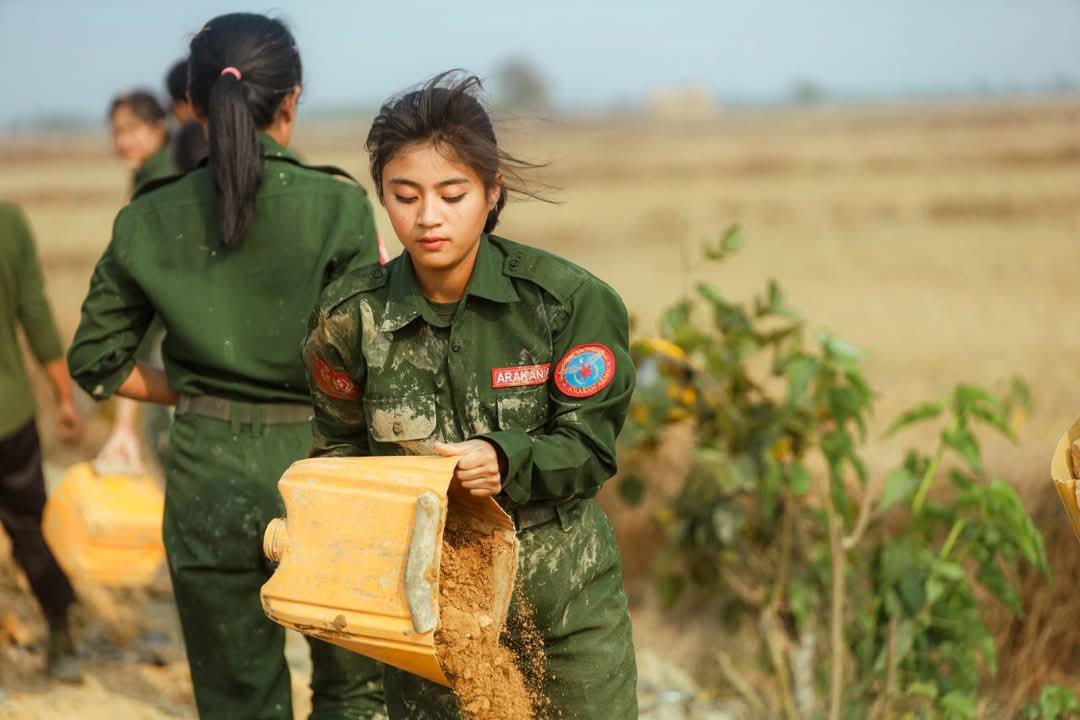The Arakan People’s Revolutionary Government is implementing administrative mechanisms in the territories controlled by the Arakan Army (AA). According to Arakan residents, the government is also working to ensure the security and well-being of the people while assisting in reconstruction efforts.
Therefore, the role of civil society organizations is crucial, and the inclusion and decision-making rights of women are also important, as highlighted by the international community.
The international community and civil society organizations believe that the Arakan People’s Government should have policies in place for women’s participation and rights.
A women’s group leader told Border News Agency that efforts should be made to enhance women’s capacities, and women themselves should also work to strengthen their skills. ULA/AA should implement policies and take action in this regard. Some armed organizations have already introduced extensive gender policies and women’s rights policies, which should also be established. Additionally, it is important to respect and adhere to international laws regarding the protection of women in conflicts.
The first-ever resolution emphasizing the peace and security of women in conflict-affected areas was adopted by United Nations member states on October 31, 2000.
United Nations Security Council Resolution 1325 (UNSCR 1325) includes key aspects such as women’s participation, protection of women and children, prevention of conflicts, and relief and recovery efforts.
As a member of the United Nations Security Council, Myanmar is also responsible for implementing and adhering to these principles outlined in UNSCR 1325.
Therefore, the international community and civil society organizations believe that the Arakan People’s Government should establish laws and policies for women, ensure legal protection, and allow women to participate in decision-making positions.
“We have been continuously working to ensure that at least 30% of women are included in all parties and armed organizations concerning gender equality. Participation is not just about numbers; each woman in that percentage should be qualified and empowered. They should have the opportunity to openly discuss and contribute their perspectives and emotions. Ultimately, decisions should not be restricted based on gender women who are capable of making decisions should be included,” said Saw San Nyein Thu, Chairperson of the Rakhine Women’s Leadership Group, in an interview with Border News Agency.
In the decisive Arakan war, the Arakan Army (AA) has fully taken control several townships, including Paletwa, Maungdaw, Buthidaung, Rathedaung, Pauktaw, Kyaukphru, Mrauk-U, Minbrar, Myaybon, Ponnakyun, Rambre, Thandwe, Taunggoke, Ann, and Gwa.
Although administrative mechanisms are being implemented in all these areas, Arakan residents say that there are still gaps in women’s security and healthcare services.
While women are involved in the Arakan People’s Government, the international community and civil society organizations note that their roles remain limited, including in decision-making positions.
“The role of women is still limited, although a small number are involved. They are not present in central administrative or military decision-making positions. This is still a gap,” said a leader of the Rakhine Women’s Group in an interview with Border News Agency.
Since the start of the decisive Arakan war, the Myanmar junta has blocked all land and water routes in the Arakan region, and has also restricted the work of international humanitarian aid organizations.
As a result, Arakan women, including those displaced by the conflict, are facing significant challenges related to food, shelter, healthcare, and security, according to Arakan residents.
Furthermore, civil society organizations report that women displaced by the conflict are living in unsafe conditions, including makeshift shelters without proper roofing, and using inadequate facilities like open bathing areas.
Additionally, civil society organizations and Arakan residents report that there is a lack of sufficient menstrual hygiene products for women, and they also face difficulties in accessing proper medical supplies and healthcare services.






